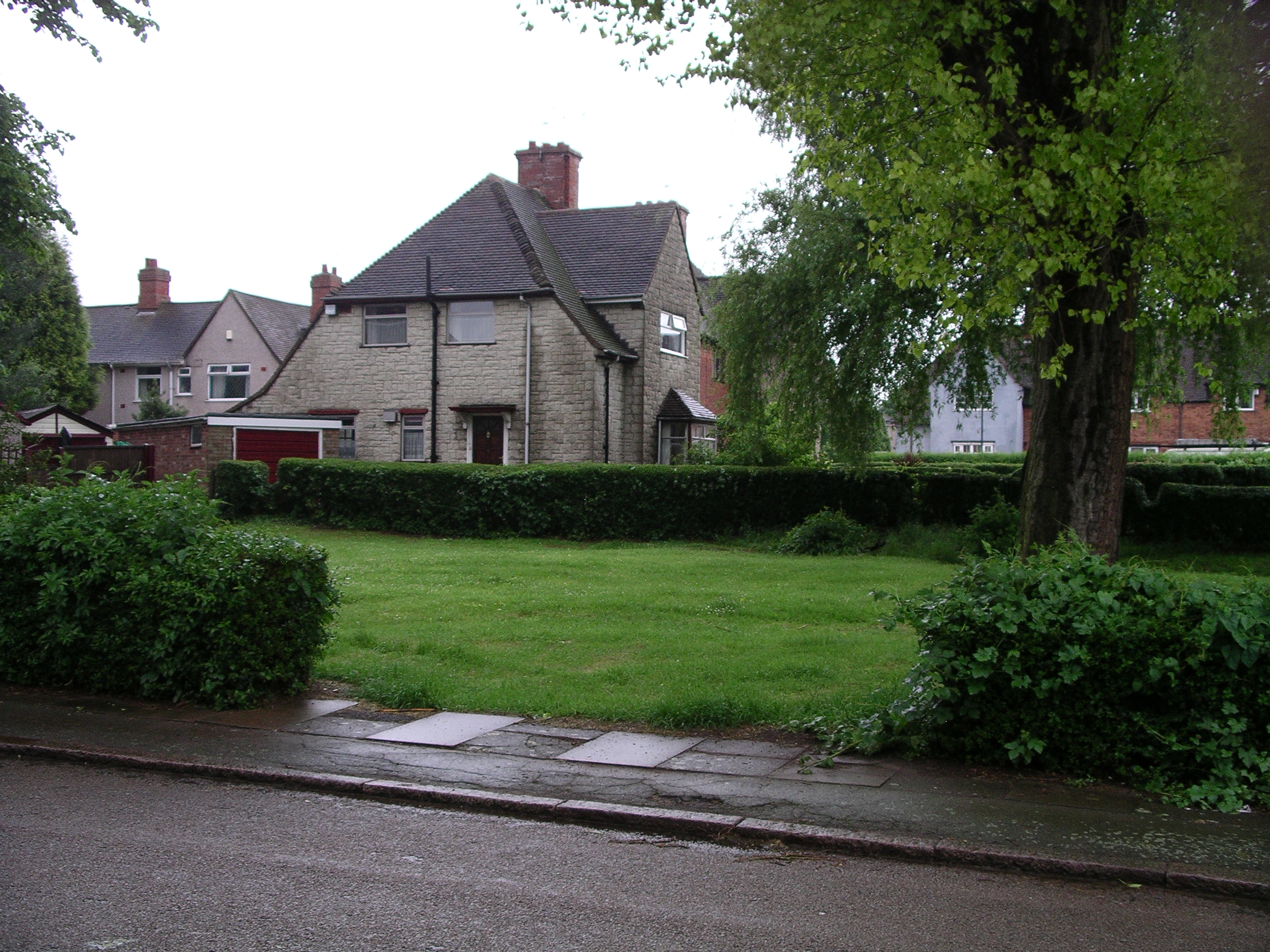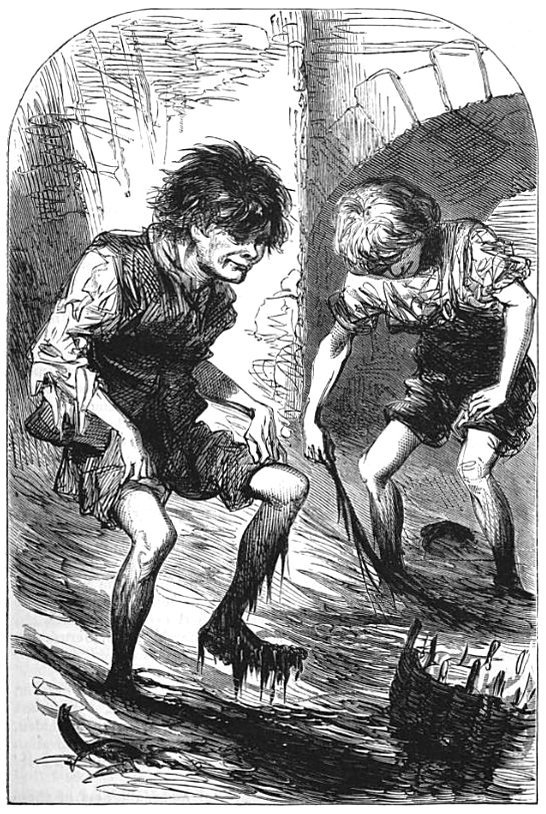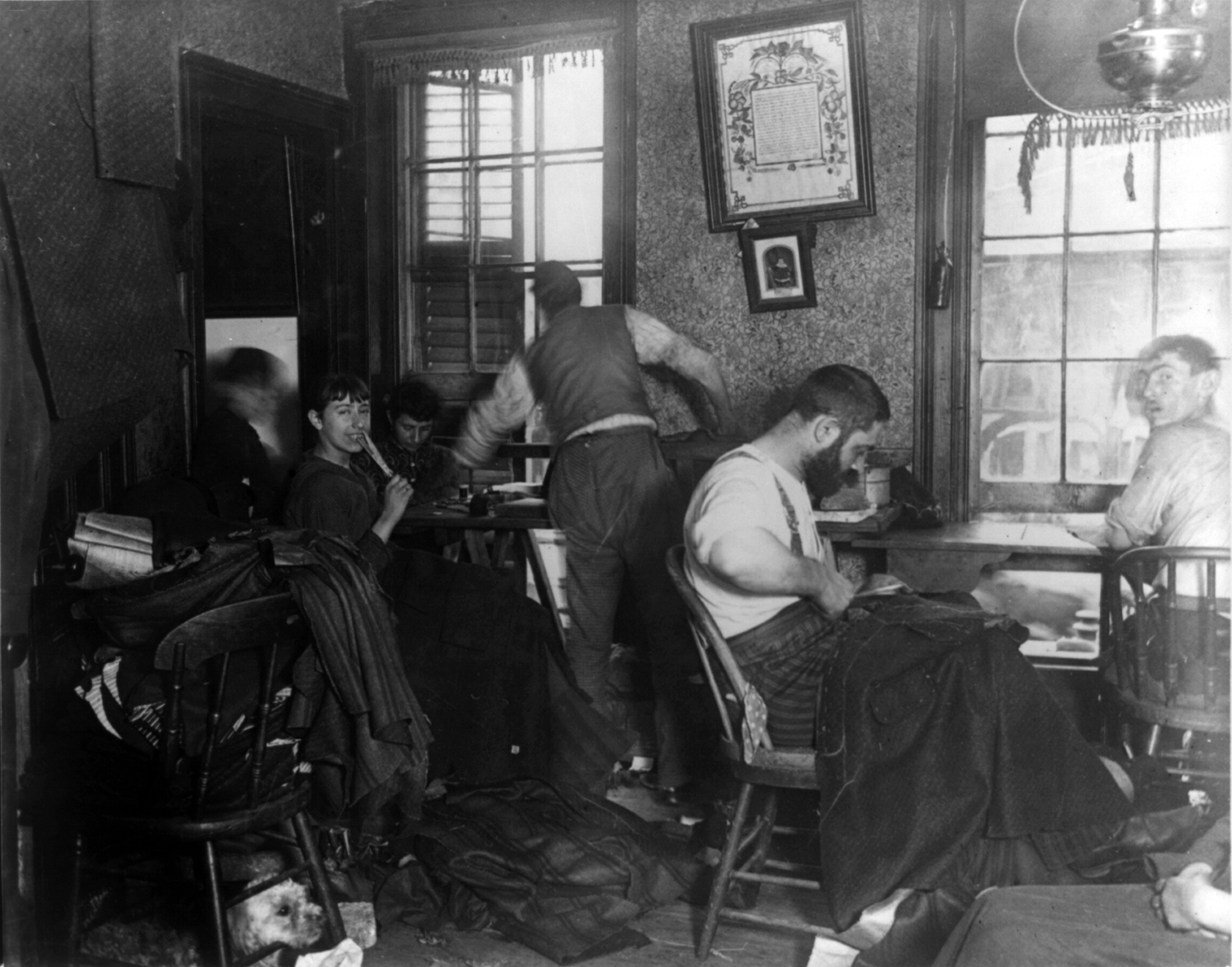|
London Labour And The London Poor
''London Labour and the London Poor'' is a work of Victorian journalism by Henry Mayhew. In the 1840s, he observed, documented and described the state of working people in London for a series of articles in a newspaper, the ''Morning Chronicle'', which were later compiled into book form. Mayhew went into deep, almost pedantic detail concerning the trades, habits, religion and domestic arrangements of the thousands of people working the streets of the city. Much of the material comprises detailed interviews in which people candidly describe their lives and work. For instance, Jack Black talks about his job as "rat and mole destroyer to Her Majesty" and remains in good humour despite his experience of a succession of near-fatal infections from bites.Jack Black, WikiSource Beyond that anecdotal material, Mayhew's articles are particularly notable for attempting to justify numerical estimates with other information, such as census data and police statistics. Thus, if the assertion is ... [...More Info...] [...Related Items...] OR: [Wikipedia] [Google] [Baidu] |
Jack Black (rat Catcher)
Jack Black was a rat-catcher and mole destroyer from Battersea, England during the middle of the nineteenth century. Black cut a striking figure in his self-made "uniform" of a green topcoat, scarlet waistcoat, and breeches, with a huge leather sash inset with cast-iron rats. Black promoted himself as the Queen's official rat-catcher, but he never held a royal warrant. Biography Jack Black is known particularly through Henry Mayhew's account in ''London Labour and the London Poor'', where he tells Mayhew of his work and experiences, including a number of occasions when he nearly died from infection following rat bites. When he caught any unusually coloured rats, he bred them, to establish new colour varieties. He would sell his home-bred domesticated coloured rats as pets, mainly, as Black observed, "to well-bred young ladies to keep in squirrel cages". Beatrix Potter is believed to have been one of his customers, and she dedicated the book '' Samuel Whiskers'' to her ra ... [...More Info...] [...Related Items...] OR: [Wikipedia] [Google] [Baidu] |
Recycling
Recycling is the process of converting waste materials into new materials and objects. The recovery of energy from waste materials is often included in this concept. The recyclability of a material depends on its ability to reacquire the properties it had in its original state. It is an alternative to "conventional" waste disposal that can save material and help lower greenhouse gas emissions. It can also prevent the waste of potentially useful materials and reduce the consumption of fresh raw materials, reducing energy use, air pollution (from incineration) and water pollution (from landfilling). Recycling is a key component of modern waste reduction and is the third component of the "Reduce, Reuse, and Recycle" waste hierarchy. It promotes environmental sustainability by removing raw material input and redirecting waste output in the economic system. There are some ISO standards related to recycling, such as ISO 15270:2008 for plastics waste and ISO 14001:2015 for enviro ... [...More Info...] [...Related Items...] OR: [Wikipedia] [Google] [Baidu] |
Philip Larkin
Philip Arthur Larkin (9 August 1922 – 2 December 1985) was an English poet, novelist, and librarian. His first book of poetry, '' The North Ship'', was published in 1945, followed by two novels, '' Jill'' (1946) and '' A Girl in Winter'' (1947), and he came to prominence in 1955 with the publication of his second collection of poems, ''The Less Deceived'', followed by '' The Whitsun Weddings'' (1964) and '' High Windows'' (1974). He contributed to ''The Daily Telegraph'' as its jazz critic from 1961 to 1971, with his articles gathered in ''All What Jazz: A Record Diary 1961–71'' (1985), and edited ''The Oxford Book of Twentieth Century English Verse'' (1973). His many honours include the Queen's Gold Medal for Poetry. He was offered, but declined, the position of Poet Laureate in 1984, following the death of Sir John Betjeman. After graduating from Oxford University in 1943 with a first in English Language and Literature, Larkin became a librarian. It was during the thirty ... [...More Info...] [...Related Items...] OR: [Wikipedia] [Google] [Baidu] |
Poet
A poet is a person who studies and creates poetry. Poets may describe themselves as such or be described as such by others. A poet may simply be the creator ( thinker, songwriter, writer, or author) who creates (composes) poems (oral or written), or they may also perform their art to an audience. The work of a poet is essentially one of communication, expressing ideas either in a literal sense (such as communicating about a specific event or place) or metaphorically. Poets have existed since prehistory, in nearly all languages, and have produced works that vary greatly in different cultures and periods. Throughout each civilization and language, poets have used various styles that have changed over time, resulting in countless poets as diverse as the literature that (since the advent of writing systems) they have produced. History In Ancient Rome, professional poets were generally sponsored by patrons, wealthy supporters including nobility and military officials. For inst ... [...More Info...] [...Related Items...] OR: [Wikipedia] [Google] [Baidu] |
Tanner (occupation)
Tanning may refer to: *Tanning (leather), treating animal skins to produce leather *Sun tanning, using the sun to darken pale skin **Indoor tanning, the use of artificial light in place of the sun **Sunless tanning, application of a stain or dye to the skin (active ingredient in tanning lotion products is dihydroxyacetone (DHA)). * Physical punishment, metaphorically, such as a severe spanking which leaves clear marks See also *Skin whitening *Tan (color) *Tan (other) Tan or TAN may refer to: Businesses and organisations * Black and Tans, a nickname for British special constables during the Irish War of Independence. By extension "Tans" can now also colloquially refer to English or British people in general, ... * Tannin (other) {{disambiguation ... [...More Info...] [...Related Items...] OR: [Wikipedia] [Google] [Baidu] |
River Thames
The River Thames ( ), known alternatively in parts as the The Isis, River Isis, is a river that flows through southern England including London. At , it is the longest river entirely in England and the Longest rivers of the United Kingdom, second-longest in the United Kingdom, after the River Severn. The river rises at Thames Head in Gloucestershire, and flows into the North Sea near Tilbury, Essex and Gravesend, Kent, via the Thames Estuary. From the west it flows through Oxford (where it is sometimes called the Isis), Reading, Berkshire, Reading, Henley-on-Thames and Windsor, Berkshire, Windsor. The Thames also drains the whole of Greater London. In August 2022, the source of the river moved five miles to beyond Somerford Keynes due to the heatwave in July 2022. The lower reaches of the river are called the Tideway, derived from its long tidal reach up to Teddington Lock. Its tidal section includes most of its London stretch and has a rise and fall of . From Oxford to th ... [...More Info...] [...Related Items...] OR: [Wikipedia] [Google] [Baidu] |
Mudlark
A mudlark is someone who scavenges in river mud for items of value, a term used especially to describe those who scavenged this way in London during the late 18th and 19th centuries. The practice of searching the banks of rivers for items continues in the modern era, with newer technology such as metal detectors sometimes being employed to search for metal valuables that may have washed ashore. Mudlarks in the 18th and 19th centuries Mudlarks would search the muddy shores of the River Thames at low tide for anything that could be sold – sometimes, when occasion arose, pilfering from river traffic as well. By at least the late 18th century, people dwelling near the river could scrape a subsistence living this way. Mudlarks were usually either youngsters aged between 8 and 15, or the robust elderly, and though most mudlarks were male, girls and women were also scavengers.Henry Mayhew, ''London Labour and the London Poor; Extra Volume'' 1861 Becoming a mudlark was usually a c ... [...More Info...] [...Related Items...] OR: [Wikipedia] [Google] [Baidu] |
Sweatshop
A sweatshop or sweat factory is a crowded workplace with very poor, socially unacceptable or illegal working conditions. Some illegal working conditions include poor ventilation, little to no breaks, inadequate work space, insufficient lighting, or uncomfortably/dangerously high or low temperatures. The work may be difficult, tiresome, dangerous, climatically challenging or underpaid. Workers in sweatshops may work long hours with unfair wages, regardless of laws mandating overtime pay or a minimum wage; child labor laws may also be violated. Women make up 85 to 90% of sweatshop workers and may be forced by employers to take birth control and routine pregnancy tests to avoid supporting maternity leave or providing health benefits. The Fair Labor Association's "2006 Annual Public Report" inspected factories for FLA compliance in 18 countries including Bangladesh, El Salvador, Colombia, Guatemala, Malaysia, Thailand, Tunisia, Turkey, China, India, Vietnam, Honduras, Indonesia, Brazil, ... [...More Info...] [...Related Items...] OR: [Wikipedia] [Google] [Baidu] |
Prostitute
Prostitution is the business or practice of engaging in sexual activity in exchange for payment. The definition of "sexual activity" varies, and is often defined as an activity requiring physical contact (e.g., sexual intercourse, non-penetrative sex, oral sex, etc.) with the customer. The requirement of physical contact also creates the risk of transferring diseases. Prostitution is sometimes described as sexual services, commercial sex or, colloquially, hooking. It is sometimes referred to euphemistically as "the world's oldest profession" in the English-speaking world. A person who works in this field is called a prostitute, or more inclusively, a sex worker. Prostitution occurs in a variety of forms, and its legal status varies from country to country (sometimes from region to region within a given country), ranging from being an enforced or unenforced crime, to unregulated, to a regulated profession. It is one branch of the sex industry, along with pornography, stri ... [...More Info...] [...Related Items...] OR: [Wikipedia] [Google] [Baidu] |
Punch And Judy
Punch and Judy is a traditional puppet show featuring Mr. Punch and his wife Judy. The performance consists of a sequence of short scenes, each depicting an interaction between two characters, most typically Mr. Punch and one other character who usually falls victim to Punch's slapstick. ''The Daily Telegraph'' called Punch and Judy "a staple of the British seaside scene". The various episodes of Punch comedy—often provoking shocked laughter—are dominated by the clowning of Mr. Punch. The show is performed by a single puppeteer inside the booth, known since Victorian times as a "professor" or "punchman", and assisted sometimes by a "bottler" who corrals the audience outside the booth, introduces the performance, and collects the money ("the bottle"). The bottler might also play accompanying music or sound effects on a drum or guitar, and engage in back chat with the puppets, sometimes repeating lines that may have been difficult for the audience to understand. In Victorian ... [...More Info...] [...Related Items...] OR: [Wikipedia] [Google] [Baidu] |
Toasting Fork
A toasting fork is a long-handled fork used to brown and toast food such as bread, cheese, and apples by holding the pronged end in front of an open fire or other heat source. It can also be used to toast marshmallows, broil hot dogs, and heat hot dog buns over campfires. Description Toasting forks were traditionally made from metal such as wrought iron, brass, or silver, and later from steel, but handles of wood or ivory might be used to prevent the heat of the fire being conducted to the hand. Food is pierced with the prongs of the fork and held over the fire until it turns brown. The toasting process requires care and attention to ensure that the item is evenly cooked and not burnt. Many toasting forks had a built-in suspension ring on one end, which allowed them to be hung when not in use. Some forks had telescopic handles which made them portable for travellers, and allowed the toast to be held closer to the fire without burning one's fingers. While most toasting fork ... [...More Info...] [...Related Items...] OR: [Wikipedia] [Google] [Baidu] |
Sanitary Sewer
A sanitary sewer is an underground pipe or tunnel system for transporting sewage from houses and commercial buildings (but not stormwater) to a sewage treatment plant or disposal. Sanitary sewers are a type of gravity sewer and are part of an overall system called a "sewage system" or sewerage. Sanitary sewers serving industrial areas may also carry industrial wastewater. In municipalities served by sanitary sewers, separate storm drains may convey surface runoff directly to surface waters. An advantage of sanitary sewer systems is that they avoid combined sewer overflows. Sanitary sewers are typically much smaller in diameter than combined sewers which also transport urban runoff. Backups of raw sewage can occur if excessive stormwater inflow or groundwater infiltration occurs due to leaking joints, defective pipes etc. in aging infrastructure. Purpose Sewage treatment is less effective when sanitary waste is diluted with stormwater, and combined sewer overflows occur when r ... [...More Info...] [...Related Items...] OR: [Wikipedia] [Google] [Baidu] |







